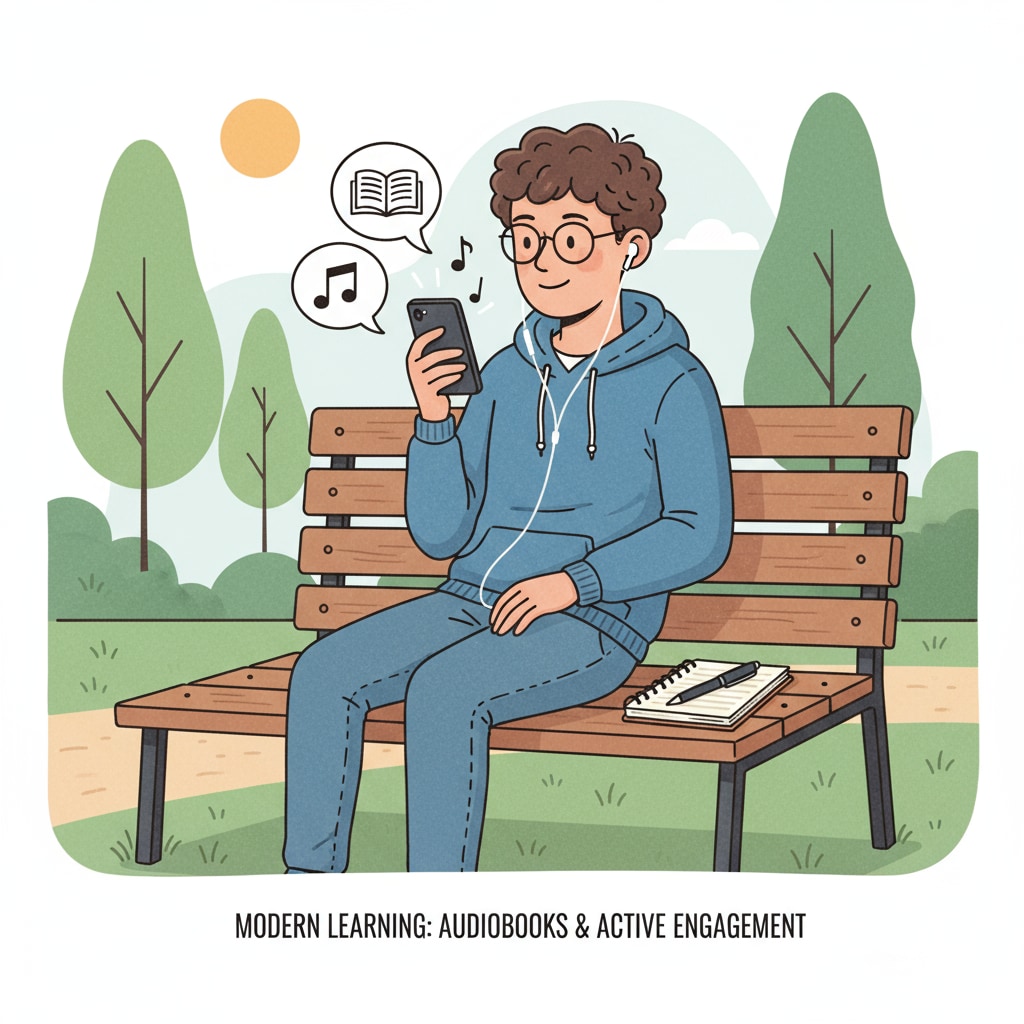In recent times, the issue of whether audiobooks can be used as a substitute for traditional reading in middle school Chinese education has sparked a lively debate. The integration of audiobooks into the 8th-grade Chinese curriculum has drawn significant attention, raising questions about their appropriateness in the realm of Chinese language education and their impact on students’ reading abilities.

The Rise of Audiobooks in Education
Audiobooks have gained popularity in recent years, not only in the general reading market but also in educational settings. In the context of middle school Chinese education, they offer a convenient alternative to traditional reading materials. For example, students can listen to audiobooks while commuting, doing chores, or during breaks, making use of fragmented time for learning. This convenience is appealing, as it allows for more flexibility in study schedules. According to Edutopia’s research on educational resources, integrating audiobooks into the classroom can engage students in different ways.

Benefits for Reading Abilities
One of the potential benefits of audiobooks in middle school Chinese education is the improvement of reading fluency. When students listen to professional narrators read Chinese texts, they can learn proper pronunciation, intonation, and rhythm. This exposure can enhance their own oral reading skills, which are closely related to overall reading abilities. Additionally, audiobooks can help struggling readers. For instance, students who have difficulty decoding written characters may find it easier to understand the content through listening. As stated by Reading A-Z’s insights on reading support, audiobooks can provide an additional layer of comprehension assistance.
Furthermore, audiobooks can expand students’ vocabulary. By listening to a wide range of texts, they are exposed to new words and phrases in context, which aids in better understanding and retention.
Potential Drawbacks
However, there are also concerns associated with relying too heavily on audiobooks. One major issue is the potential negative impact on students’ ability to focus and concentrate. Listening to an audiobook requires different cognitive skills compared to reading silently. Without the visual engagement of following the text, some students may find it easier to get distracted. In addition, the lack of direct interaction with the written language may hinder the development of important reading strategies, such as skimming, scanning, and close reading. These skills are crucial for in-depth understanding of Chinese texts, especially in an educational context where critical thinking and analysis are emphasized.
Another concern is the potential substitution of active reading with passive listening. Middle school Chinese education aims to cultivate students’ independent reading and thinking abilities. If students become overly reliant on audiobooks, they may miss out on the opportunity to engage deeply with the text, make connections, and develop their own interpretations.
Finding the Right Balance
In order to make the most of audiobooks in middle school Chinese education, it is essential to find a balance between convenience and the development of reading abilities. Educators can use audiobooks as a supplementary resource rather than a complete replacement for traditional reading. For example, they can assign audiobooks for pre-reading activities to familiarize students with the content, or as post-reading reinforcement to enhance comprehension. By combining different reading modes, students can benefit from the advantages of both audiobooks and traditional reading materials.
Moreover, teachers can guide students on how to use audiobooks effectively. This may include teaching them how to listen actively, take notes, and engage in discussions related to the content. By providing such guidance, students can develop the skills necessary to navigate both the auditory and visual aspects of reading in the context of Chinese language education.
Readability guidance: As we have seen, audiobooks present both opportunities and challenges in middle school Chinese education. While they offer convenience and certain benefits for reading abilities, it is crucial to address the potential drawbacks. By finding the right balance and providing appropriate guidance, educators can ensure that students receive a well-rounded education that nurtures their reading skills in the Chinese language.


